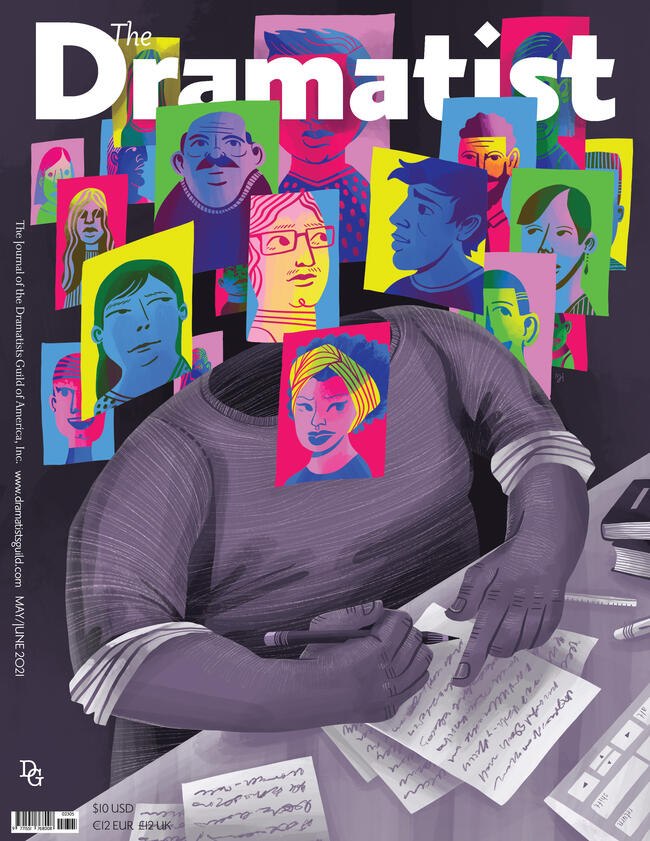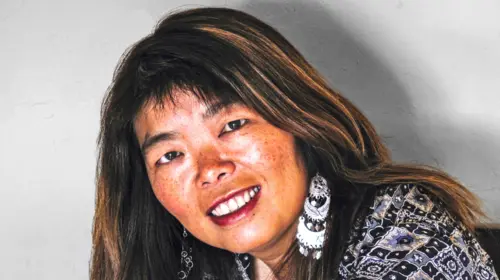
Ever since I can remember, I wanted to do something involved with theatre (I even joined the Guild at fifteen when I wrote my first play!). I had the advantage of parents who took me to see shows and teachers who exposed me to writers like Durang and Guare whose voices felt familiar and, therefore, gave me permission to add mine alongside theirs.
In the high school theatre program that I run, every student is required to write at least one play, even though many of them feel like they “have nothing to say.” My job is to get them to realize they have lots to say and to give them the confidence to say it. My job, and I’d argue the job of all teachers, is to help my students find their voices.
For years I taught a pretty common theatre syllabus—Ibsen, Chekhov, O’Neill, Miller—and while some students responded to the plays, many simply read them because they had to (or maybe they didn’t…I’m now an expert in the gaps between Sparknotes and the actual text) and promptly put them aside. I quickly realized that the writers I’d been introduced to as a student, whose voices had inspired me, were not always going to be the ones that sparked a connection in my students. And if my students didn’t hear voices similar to theirs, if they couldn’t imagine a place for themselves at the table, then I was failing at my job.
So I was excited to add another voice to the syllabus with Lynn Nottage’s amazing Pulitzer Prize-winning Ruined, set in the Democratic Republic of the Congo during the Congolese war, to be read alongside Brecht’s Mother Courage and Her Children. Ruined’s Mama Nadi is a descendant of Mother Courage but Nottage’s story and voice are uniquely hers. And it was a voice that had been sorely missing in my classroom.
For the very first time, many of my students perked up in a way they never had because they heard something they recognized. One of them said, “Perhaps Lynn Nottage, being a female playwright, understands what it truly feels like to be a mother and therefore a stronger bond is developed between Mama Nadi and her selected children than Mother Courage has with her own.” Another student shared that, “At first, Mother Courage didn’t bother me that it was written by a white male writer because that’s usually the type of people who write plays. But reading Ruined opened my eyes and really hit a chord with me. Maybe more different people could be writing plays as well.”
Hearing this student describe who she thought of as the normal “type of people who write plays” is exactly why I started teaching Ruined. And why I’ll continue to. Yes it’s an amazing play, but it’s allowed me to build confidence in my students and to see themselves as not only “the type of people who write plays,” but the type of people whose voices need to be heard in any setting. After all, that’s my job.



